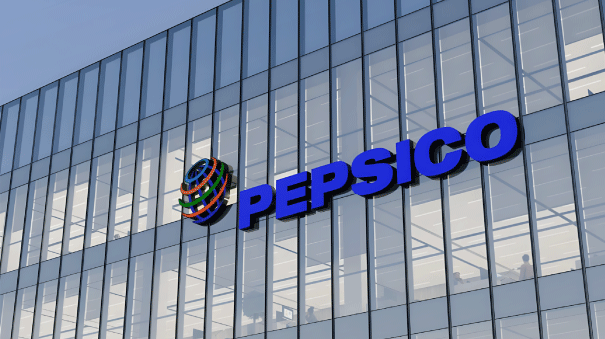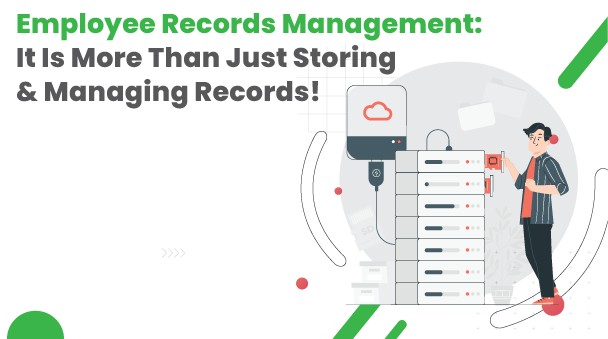Companies with a large number of employees must have proper employee record management system in place to avoid incurring financial penalties or litigation. By keeping employee records, companies can protect institutional memory, maintain business activities, make better decisions, and aid in transactions. A comprehensive HR records management can save money and improve organisational efficiency. Thus, implementing a plan for managing records can be a crucial strategy for the betterment of the organisation.
Here, you will learn all about employee record management and how it is not just about storing and managing records. Further, we will also talk about automating the processes and files related to Employee Information System. But before that, let us answer the question – What is Employee Record Management?
What is Employee Record Management System?
An employee record management system is an electronic application system with which the HR professionals capture and store employee records and track data for the smooth functioning of the organization. It includes aspects like Employee Data Management and Digital Employee Records to ensure all information is accurately and efficiently accessible.
Employee Record Management (ERM) is crucial for organizations, as it helps in keeping track of all the human resources and is also essential for organizational audit and compliance. The non-maintenance of employee records may result in missing out on valuable information.
Some Research Findings
The following are a few figures related to Employee Record Management:
- In a quarter, 69% of HR professionals share documents with a third party
- 11% of the HR professionals share information once a week
- 76% of HR professionals consider email as the primary tool for sharing employee information
- 67% of HR professionals deliver physical copies of employee records
Types of Employee Records
Employee records are of the following types:
- Records of applicants’ past, the progress of employees, medical reports, etc.
- Payroll records, wages, and salary methods leave, turnover, and other benefit records
- Appraisal reports, transfers, training methods, and schedule
- Sickness reports, medical history, and health insurance reports
- Employee bio-data, home address, family information, academic qualification, marital status
Importance of Employee Record Management
Apart from employee performance monitoring and following the GDPR compliance, Employee File Management holds importance in the following aspects in an organization:
- Staying Competent: Updated employee records offer an overview of the employee training, qualifications, and certifications so that you can comprehend the business competency. It is consequential for industries looking to stay compliant with the regulations.
- Health Assurance: HR Record Management keeps you up to date on fire safety and first aid training to protect the employees at the workplace. It also lets you maintain a record of team members with disabilities when planning tasks.
- Hours Management: Employee Record Management keeps track of the hours that employees have worked to determine allowances and payroll information.
- Dispute Minimization: Potential disputes between the employer and employees reduce with HR Document Management. HR professionals can also keep records of attendance and holidays while ensuring that the correct workplace procedures are followed.
Now that we know how beneficial an Employee Record Management process is, we can reduce the time it takes to process the records with automation, which we will discuss in the following section.
Employee Record Management Automation
An employee spends around 60% of their average day making records or documents; hence, managing the information effectively can impact the success of an organization. The information must be shared with the right people at the right time. Manual processes can misplace or delay passing the information.
With enterprise HR document management software, the information can be stored and managed in a central location. This way, the documents are easier to find by managing the database, systems, and physical storage content. The following are a few benefits of automating the Employee file Management process:
- Legal Retention: An efficient Employee data Management solution helps in meeting legal retention and organizations are benefited from multiple destruction options.
- Risk Minimization: Records automation minimizes risk and supports compliance by storing, safeguarding, and destroying information as per the regulations without purchasing third-party software or hardware.
- Automating Information Flow: In the file automation process, a document is stored and information is moved within the organization. After receiving an application, the document management system notifies the hiring manager, who then reviews the profile of the candidate and communicates the information. With a document management system, the flow of information can be automated for employee applications, documents onboarding, I-9, payroll, W-2, deposits, and much more.
- Accuracy Improvement: Replacing the work where humans are involved with software automation results in greater accuracy. For human resources, this applies to company processes such as attendance and payroll, and the employees receive all the benefits, resulting in higher employee retention and lesser HR complaints.
- Authorized Access: All files with employee data must be secured. Employee records such as I-9s must be only accessible to certain HR representatives. With HR document management automation, it is possible to restrict unauthorized individuals. Permissions can be set for employee information such as employee benefits enrollment and performance reviews.
- Compliance Reminders: With a document management system’s workflows, you get visibility over the employee certifications, such as ServSafe certification, OSHA forklift certifications, or HIPAA compliance certification, to be recorded and updated from time to time for which you can set the reminders.
Conclusion
Employee data management plays a significant role in the functioning of the organizations in various aspects such as payroll management, leave allocation, staying compliant, monitoring employee performance, and so on.
WeP Solutions provides Employee Record Management Solutions to help you run your business smoothly.

